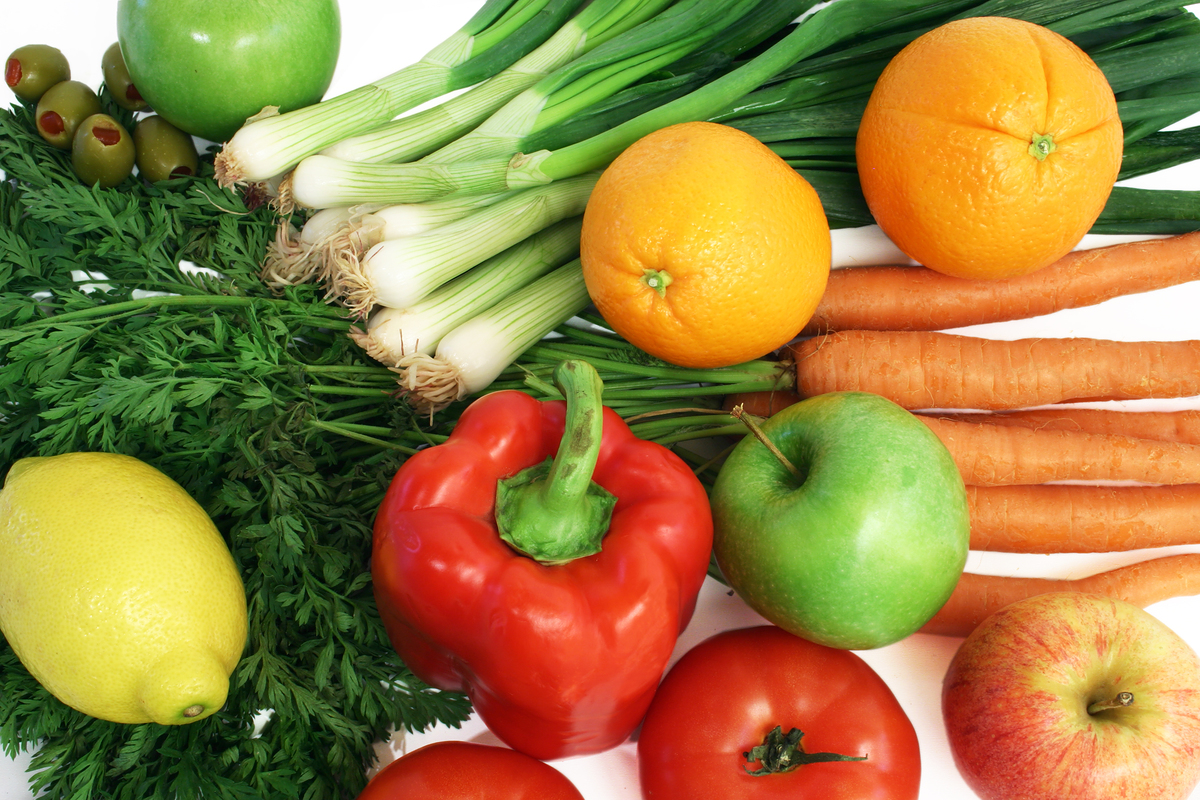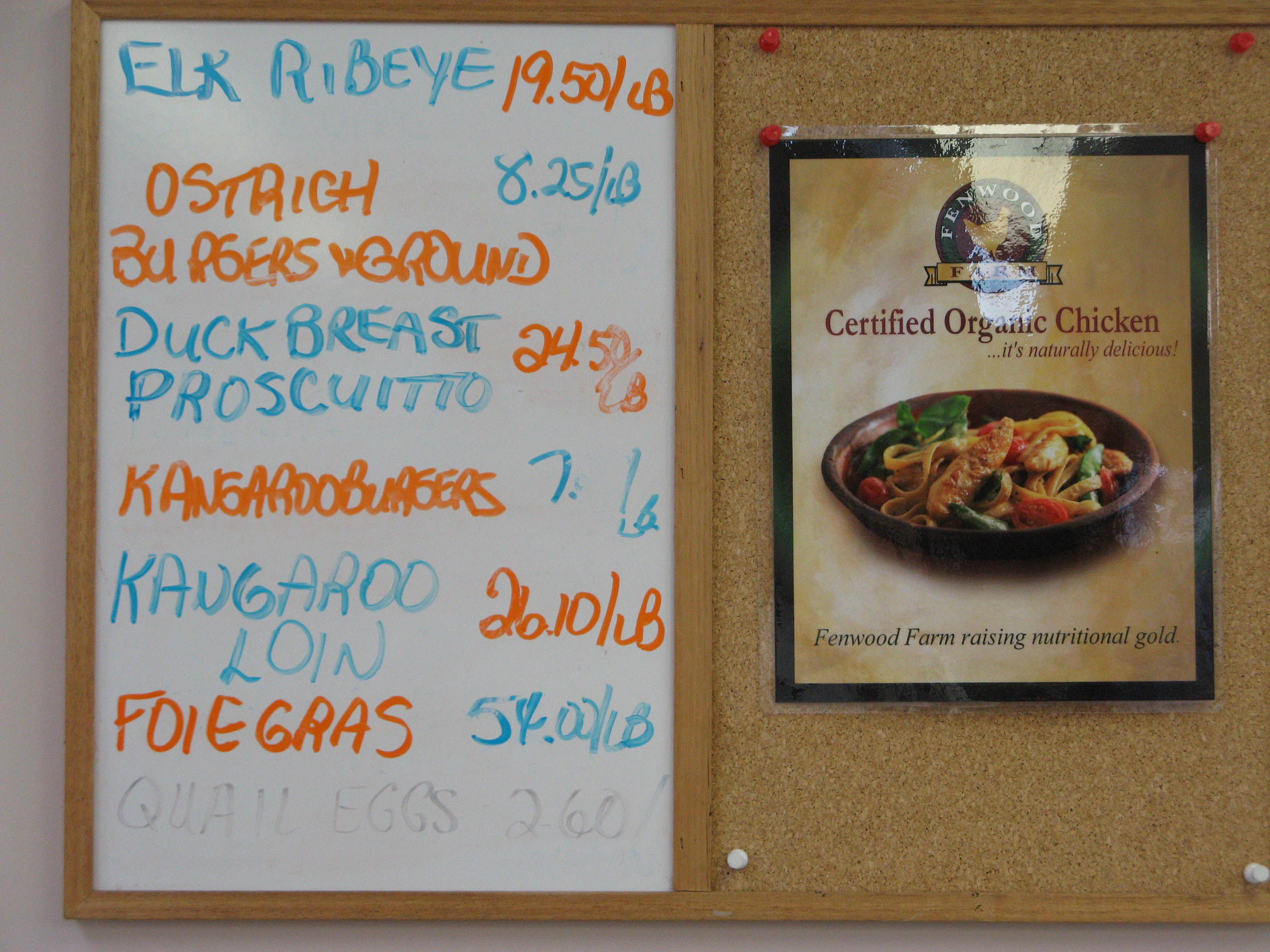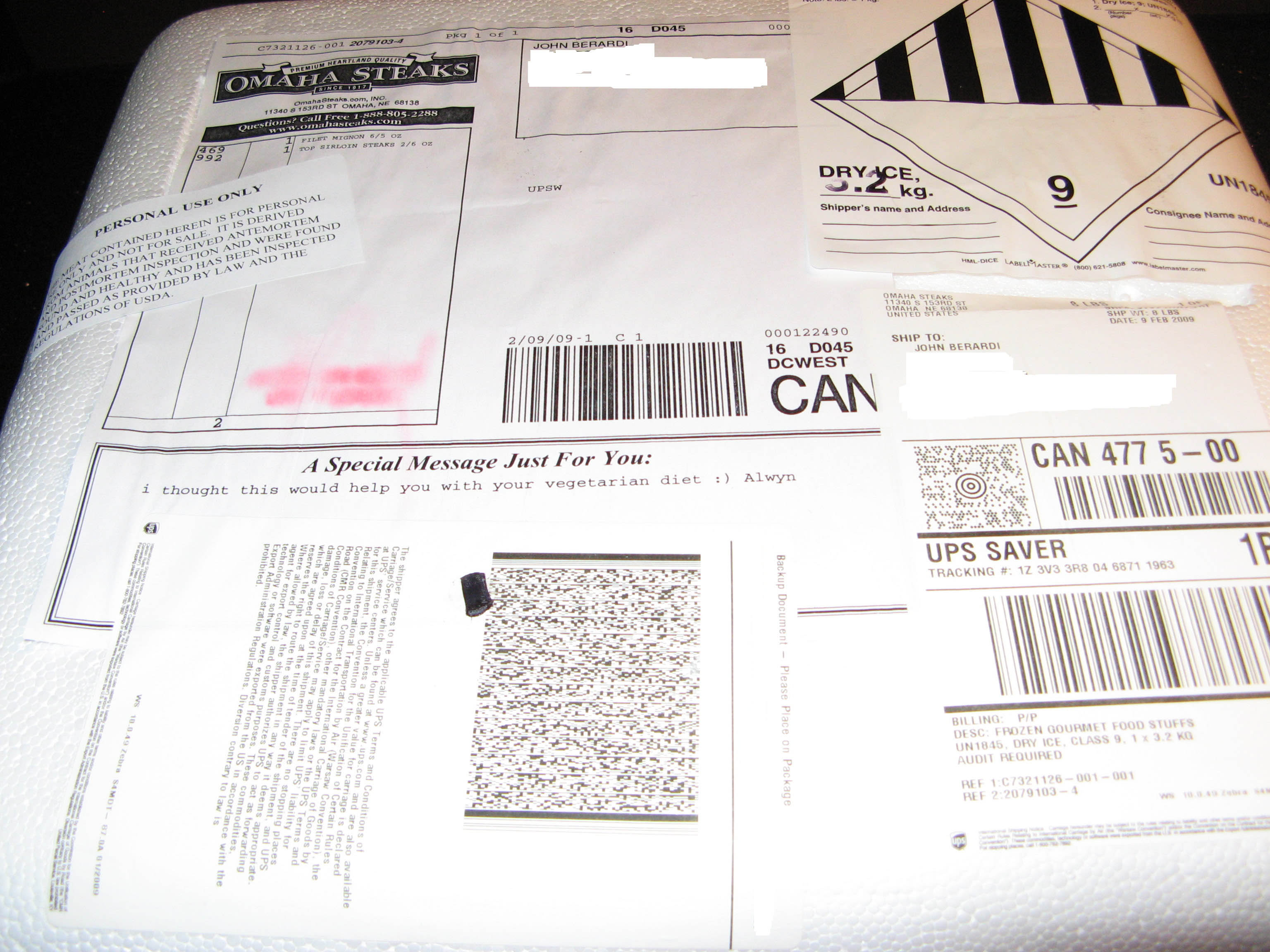This week, I wanted to discuss something that’s come up quite a lot over the last few weeks. The question of whether eating meat is actually good for us – or whether it’s disease waiting to happen.
Meat: The debate
As most of you know, I recently embarked upon a little “vegetarian” or, plant-based diet journey. Well, as of last week, my journey came to an end. Right now I’m in the process of wrapping up my reports, including compiling all my body comp data, pictures, etc. And I’m hoping to report back next Wednesday with my final tally and thoughts.
However, this week, I wanted to discuss something that’s come up quite a lot over the last few weeks. The question of whether eating meat is actually good for us – or whether it’s disease waiting to happen.
It seems that this subject is one of the hottest topics in today’s media climate, with omnivores and vegetarians lining up on opposite sides of the fence and lobbing information bombs back and forth at each other.
Of course, whenever someone tries to justify their own personal lifestyle, post hoc, with references, research, and citations, objectivity goes out the window. Indeed, on the anti-meat side, guys like Dr Colin Campbell (of “The China Study” fame), an outspoken vegan himself, is called into action. And on the pro-meat side, guys like Dr Loren Cordain (of “Paleo Diet” fame), an outspoken omnivore, is called in to pinch hit.
So, who’s right? And who’s the moron?
Well, not so fast. I mean, both are very well educated. Both are well published. Both are highly accomplished. And both seem to make a lot of sense. So neither is a moron. And maybe neither is wrong. Indeed, here’s how I look at it.
It’s sometimes possible for two intelligent people to look at the same information and come up with different conclusions.
It’s also possible for two intelligent people to come up different conclusions that both happen to be correct, depending on the circumstances.
The vegetarian interview
A few weeks back, Chris Shugart, over at T-nation, caught wind of my little plant-based experiement and asked for an interview. You can read the interview transcript below:
And after the interview, on the T-nation forums, there was a really rich discussion thread. As expected, there was some real polarity. The meat-eaters thought my experiment was ridiculous. Never would they give up their precious meat. And the vegetarians thought the experiment was great. Finally some validation.
The truth, however, is that many of them missed the point. I didn’t do this experiment to see whether vegetarian eating was better than meat eating or vice versa. I did it to see what merit could be drawn out of BOTH approaches.
Further, and perhaps more importantly, I did it to draw some attention to the very real risk vs. reward analysis that must be done when choosing a meat-heavy diet or a plant-based diet. It’s certainly possible to degrade your health in a big way with both types of eating.
So the key isn’t choosing between the two. It’s understanding the merits and drawbacks of each style of eating. And, whichever style you choose, making the absolute best nutritional decisions.
So, is meat bad?
This is the main question isn’t it? Many vegans, influenced by Dr Colin Campbell, are asserting that meat is indeed bad for us. That it causes cancer. That it dramatically increases disease risk.
But are they oversimplifying the issue? Truthfully, I think so. After all, here’s a similar question:
Is fat bad?
That’s a silly one, isn’t it? In this day and age we all know that the question is too simple. What kind of fat? In what amount? Prepared in what way? These are all distinctions we’d need to know before rendering a verdict on the value of fat in our diets.
And the same goes for meat.
There’s no question that eating the right kind of meat in the right amounts definitely fits in to an overall healthy diet. And more than health, it’s a solid part of a muscle-building or muscle-preserving diet. The high protein content, high B-vitamin content, and high iron content is important. Indeed, both health and muscle building are severely compromised if any of these nutrients are missing.
However, there also seems to be good evidence that eating too much of the wrong types of meat can be problematic for some. For example, there’s no question that there’s a relationship between eating meat and cancer risk. And that’s not just speculation. Over 100 epidemiological studies have shown it.
Now, for meat eaters here’s the big question — what’s the link? Well, a large part of it may be that most typical high meat eaters also tend to eat less of the other healthy stuff. Like veggies. Like whole, unprocessed grains. Like healthy fats. So their diets tend to be high in calories, high in saturated fat, and low in fiber, antioxidants, vitamins and minerals, etc. This is a pretty good recipe for disease risk for most people.
Now, the logical solution here isn’t to avoid meat. Rather, it’s to avoid displacing all those other healthy foods with meat. It’s to include both meat and high fiber foods, fruits, and veggies, and more.
Meat, cancer, and hormones
Beyond dietary displacement, as discussed above, there are two other concerns with diets high in meat. First, carcinogens. Second, hormones and antibiotics.
There’s some pretty compelling evidence nowadays that a host of potentially carcinogenic compounds are introduced into our bodies when we eat cooked meat – including: N-nitroso compounds, heterocyclic amines, or polycyclic aromatic hydrocarbons. These compounds are most linked to colon cancer and stomach cancer. There are other links reported but they’re not as strong.
In the end, though, the meats that seem to be most problematic are processed meats (lunch meats, canned meats, jerkey, etc.) as well as heavily grilled meats – blackened or charred.
But, again, these risks can also be managed. So, as discussed above, the strategy isn’t to avoid meat. It’s to avoid processed meats. To be careful in overcooking grilled meat. And finally, to boost your intake of fiber and fruits and veggies. Fiber has a protective effect against GI cancers. And fruits and veggies boost antioxidant defense. This is the perfect antidote to the problems associated with processed and/or heavily grilled meats.
Finally, beyond the cancer risk, in farmed meats nowadays we tend to see a lot more hormones, environmental pollutants, and antibiotics. Not good since we probably do absorb a small amount of these chemicals. But let’s not throw the baby out with the bath water. Rather than avoiding meat, how about sticking with hormone-free, naturally raised meat. Note: grass-fed is probably the best.

Eat meat, wear your seat belt
Now, before we move beyond this topic, it’s important to be really clear about something. Almost everything we eat or do in life has its risks. In fact, I’m much more likely to get into a car accident and die than I am to die of colon cancer. But that doesn’t mean I take either lightly. I try to understand my risks. And then buffer them.
For example, because of the car crash risks, I wear a seat belt. Likewise, because of the meat risks, I make sure that I avoid processed meats, I eat lots of antioxidant-rich fruits and veggies as well as fiber rich nuts, seeds, and legumes, and I eat primarily naturally raised, hormone-free meat.
This way I get all the benefits of meat while buffering the risks. No vegetarianism required.
What about meat building up in the colon
Over the course my vegetarian experiment, many folks have asked me whether or not meat builds up in the colon. The answer, yes and no. Meals high in meat do take between 24-48h to digest and work their way through the GI tract. However, this is a pretty normal transit time. Most meals take this long to get through the GI tract. So there’s nothing all that unusual about meat in this regard.
However, 60-80lbs of undigested, impacted fecal matter building up in our body over years? Impossible. Have you heard the John Wayne story? This is what’s being used to support that absurd claim.
Apparently when he died, they found 60-80lbs of undigested material causing a massive intestinal blockage. And apparently this was found during his autopsy. All according to many vegetarian and colon cleansing web sites.
Well, for starters, John Wayne never even had an autopsy. Now, he did have surgery for a cancer-related intestinal blockage about a month before his death. But that had nothing to do with impacted feces or his diet.
Of course, this doesn’t prove that no one gets a build up of undigested fecal matter. Indeed, it’s possible to get some fecal build up in the colon. Definitely not in multiple pound quantities, accumulation above a small amount would be quite painful. Also, only those in unique circumstances in which genetically susceptible people eat no fiber and take drugs that decrease digestion and GI motility.
So it’s not the meat that’s responsible for any small build ups that might occur. It’s what’s missing from the diet. And what drugs folks are taking.
The debate rages on
As I said above, it’s quite possible for intelligent people to see the same information and come to different conclusions. So I anticipate that there will be some disagreement even with the general recommendations I make in this article. And that’s ok with me.
I’m not here to convince anyone of anything. Nor am I here to push my way of life onto your dinner table. Rather, I’m simply here to present the information as I see it. And as I’ve experienced it as both an omnivore and a plant-based eater.
In the end, it’s up to you to decide how you’ll use this info. I just hope you use it wisely.
My meat run
Although I consider this project a big success, that doesn’t mean I’m going to continue to stick to an exclusive plant-based diet. Indeed, just yesterday I did a meat run to Lake Land Meats in St Catharines, Ontario.
A member of the Niagara Culinary Trail, Lake Land is my preferred provider of local, free-range, and additive free meats. I can regularly pick up Ontario-raised venison, elk, wild boar, bison, ostrich, pheasant, duck, quail, rabbit, trout and more.

Also, last week, my good (and sarcastic) friend, Alwyn Cosgrove, further stimulated the process by sending me a big, styrofoam package full of top quality, Omaha steaks. I must admit, after marinating with a few tablespoons of white vinegar, olive oil, salt, pepper, and cajun seasoning and cooking on my Foreman Grill, these were some of the best I’ve ever tasted.

But just because I’m back on the meat doesn’t mean that my plant-based experience hasn’t influenced my eating. In fact, as a result of this experiment, I have a ton of new plant-based meals and restaurants that I’ll continue to enjoy. Further, I’ve learned a whole lot about where my food comes from. And finally, I have a new found respect for the commitment that goes into exclusive plant-based eating.
If you’re a coach, or you want to be…
You can help people build sustainable nutrition and lifestyle habits that will significantly improve their physical and mental health—while you make a great living doing what you love. We'll show you how.
If you’d like to learn more, consider the PN Level 1 Nutrition Coaching Certification. (You can enroll now at a big discount.)

Share